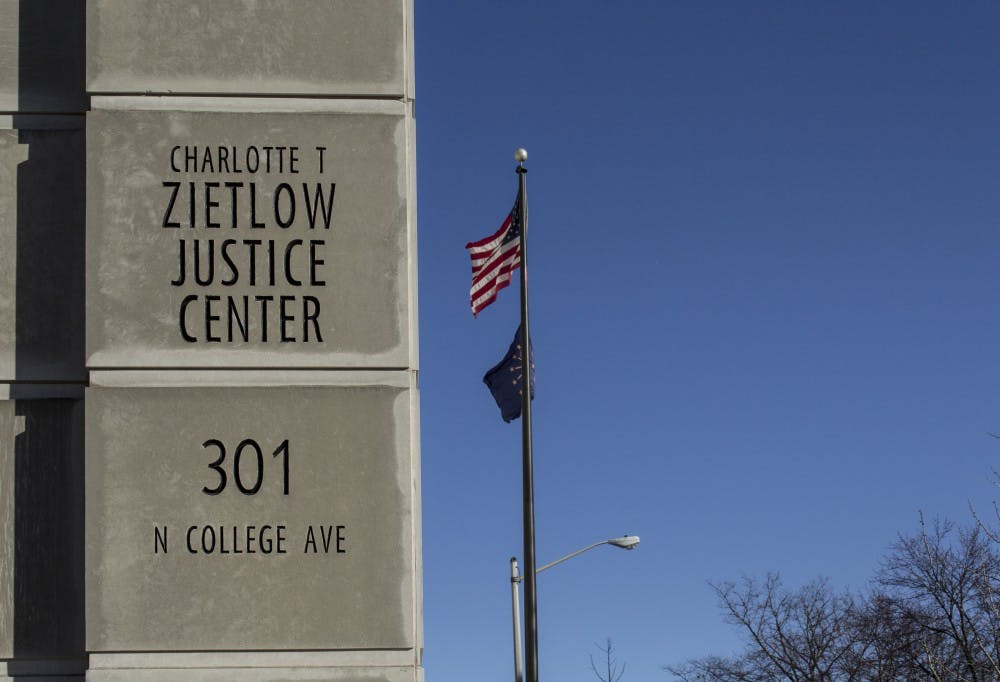A Monroe County judge decided Feb. 7 to postpone the sentencing of a Bloomington man with a history of mental health issues who shot and killed his friend in January 2019.
According to court documents and witnesses, 63-year-old Garry Hicks came into a small fortune of around $270,000 of disability back pay from Veterans Affairs in the fall of 2018. Friends and family said he then started to become paranoid — paranoid that people were going to hurt him and his girlfriend — paranoid that someone was going to take his money.
Then on the night of Jan. 24, 2019, Hicks took a shotgun and killed his friend James Michael Troxal. He reportedly told his girlfriend Sandra Ritter, “I thought it was them.” Hicks pleaded guilty to Troxal’s murder Dec. 10.
Hicks, a Bloomington resident, has had a history of brain trauma and health issues, according to medical records and testimony from family and nurses.The Monroe Circuit Court Division 3 debated Feb. 3 whether Hicks was of sound mind during the incident. If the courts find him to have not been, it could mean a reduced sentence or no prison time at all.
Judge Christine Talley Haseman said she was going to take the case under advisement and that it may be a couple weeks before she makes a decision. A date for the sentencing has not yet been set.
“The decision I’m making here is affecting a lot of lives,” she said.
Arguments over Hicks’ blood sugar levels, diabetes, dementia and delirium were brought up to defend why he couldn’t recognize Troxal as his friend, even when Troxal was living in Hicks’ garage at the time.
The main point of contention Friday centered around the night Troxal was shot. Prosecuting attorney April Wilson played a recording of the 911 call for Judge Haseman, calling it “our silent, unbiased witness.”
The call was placed by Hicks’ girlfriend Sandra Ritter a few minutes after Troxal was shot.
“We’re at the house and we’re scared,” Ritter said to the operator. “We don’t know what happened.”
The operator asked Ritter to hand the phone over to Hicks. He was told to call out for Troxal and look to see if there was a gun still nearby. Hicks called out with no response. He said there wasn’t a gun and there weren’t any guns in the house.
“You’re doing a really good job staying calm for me,” the operator said.
Evidence showed a bullet casing was found in a drawer in Hicks’ bedroom, and a shotgun was found in the trunk of a neighbor's truck in Hicks' driveway, according to court documents.
The prosecution argued Hicks wasn’t telling the truth on the 911 call. Wilson said since Hicks helped identify the house and information about Troxal, he understood the situation and what was going on. Defense argued Hicks could have potentially been falling in and out of lucidity throughout the night because of his mental health issues, not remembering what happened correctly until later.
Sometime in the 1980s, Hicks got into a fight with one of his coworkers and fell down the stairs, hitting his head on the concrete floor. One the witness stand, Hicks’ twin brother Larry said he held Hicks’ head while blood poured from his ears and they waited for the ambulance.
Years later, around 2001, Hicks fell off his brother’s balcony when the railing Hicks was leaning on broke. He fell 15 to 18 feet headfirst. He spent around 30 days in the hospital, Larry Hicks said.
Polly Westcott, a neural psychologist, testified Feb. 2 that these head injuries over time have resulted in a mild to major neurocognitive disorder, according to CT scans Westcott analyzed.
Westcott explained that these issues were exacerbated by Hicks' other medical issues. Hicks has suffered a heart attack and has diabetes, but the diabetes went uncared for, Westcott said. After the shooting, Hicks’ blood sugar level read 234. The typical blood sugar level is between 100 to 140.
Westcott said Hicks’ brain trauma worsened over time, and coupled with untreated diabetes and heart issues could have led to early dementia, which would explain Hicks’ demeanor. Nurses from Advanced Correctional Healthcare testified that Hicks has exhibited signs of lethargy, inability to comprehend conversations or issues, memory loss and has reported seeing and hearing things.
Hicks’ attorneys Todd Sallee and Michael Krupp argued Hicks allegedly seeing and hearing things the night of the incident could have led him to not recognize Troxal.
Hicks’ brother Larry, 63, testified Hicks began talking about seeing and hearing people about two years ago. The first instance was when Hicks told his brother he saw people reflected in the brass doorknobs of his house trying to get in.
“He was scared to death,” Larry said. “So help me God, that’s the truth.”
Thomas Gott, a neighbor of Hicks, agreed Hicks started acting scared all the time starting in the fall of 2018. Gott said Hicks would stay late at Gott’s house, waiting for his girlfriend Sandra to be home because he didn’t want to be home alone.
Gott, along with Westcott, Larry and others agreed a prison sentence may not be the best option for Hicks. There may not be mental health resources or programs in prisons that could help Hicks get better.
“Mike Troxal is never going home to his family,” Prosecutor April Wilson said in her closing argument.
Hicks has already spent about a year in jail. He was booked and charged with murder Jan. 25, 2019, the day after the incident.




